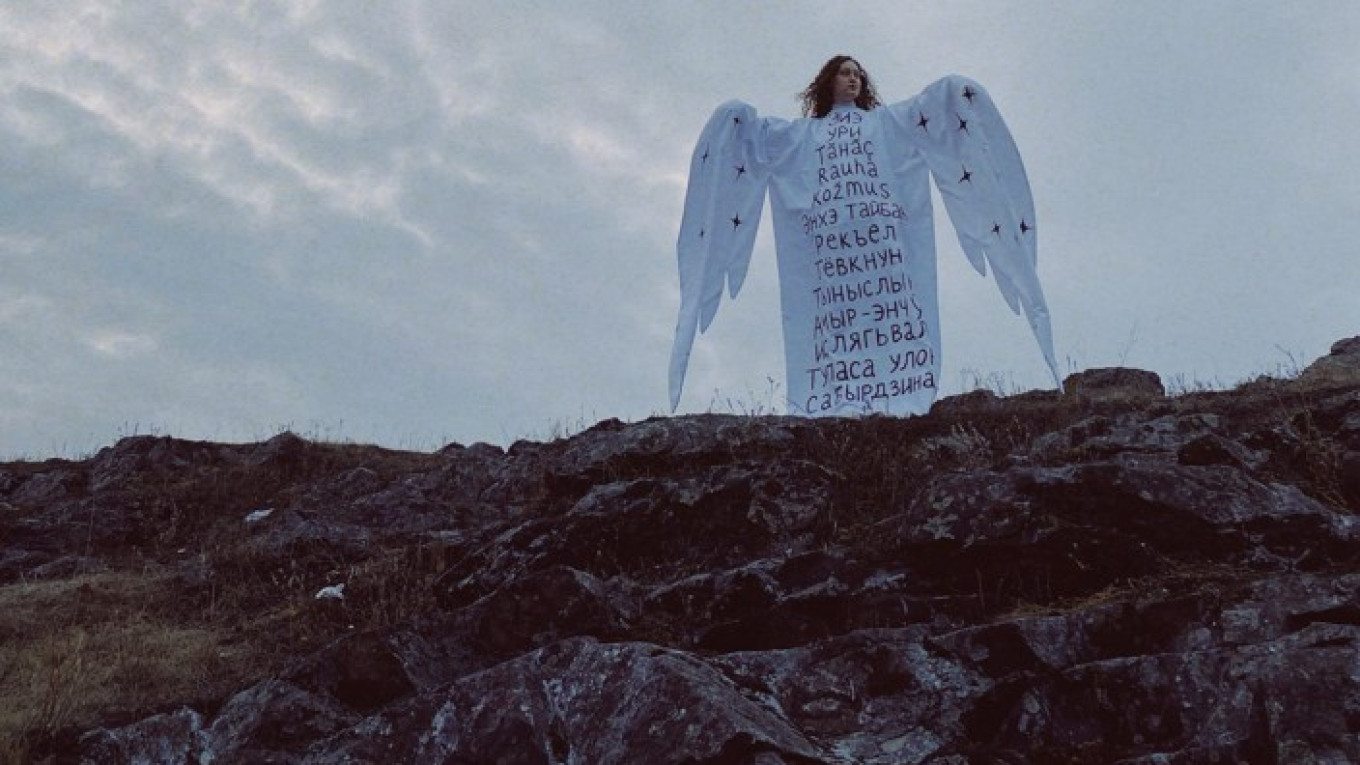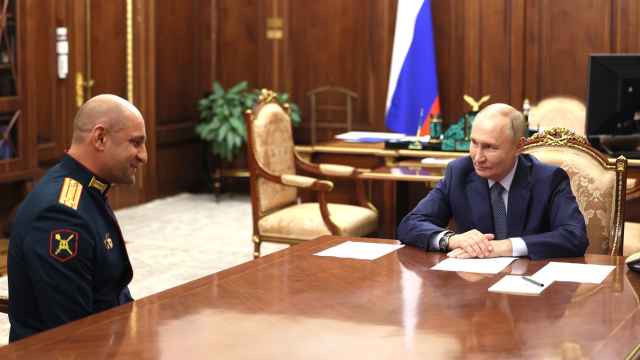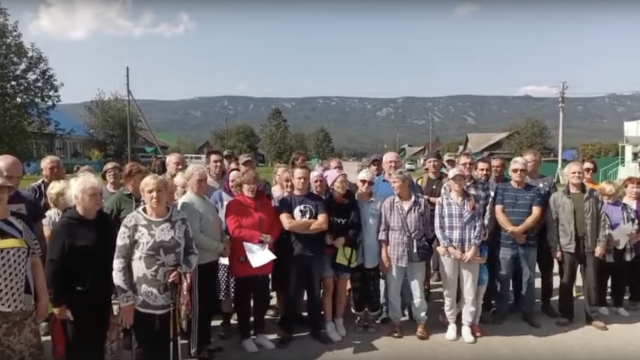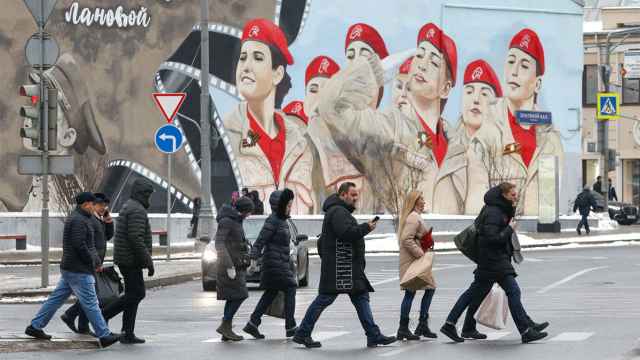A nylon fabric heart is embroidered with the word “pain” in languages of the nationalities of Russia. This is the third work of the project “I hear the voices of Russia” by Alisa Gorshenina, who is also known as Alice Hualice.
She lives in the Urals town of Nizhny Tagil, which has a population of about 300,000. “My art is my life,” Alisa Gorshenina told The Moscow Times. “My works have always expressed everything that was connected with me. For example, I did some works in supporting the artist Yulia Tsvetkova [arrested under several charges of pornography and “LGBT propaganda among minors”]. Gradually, the wall between my world and the real world was coming down, and politics began to permeate my art. On February 24, 2022, the wall finally came down.”
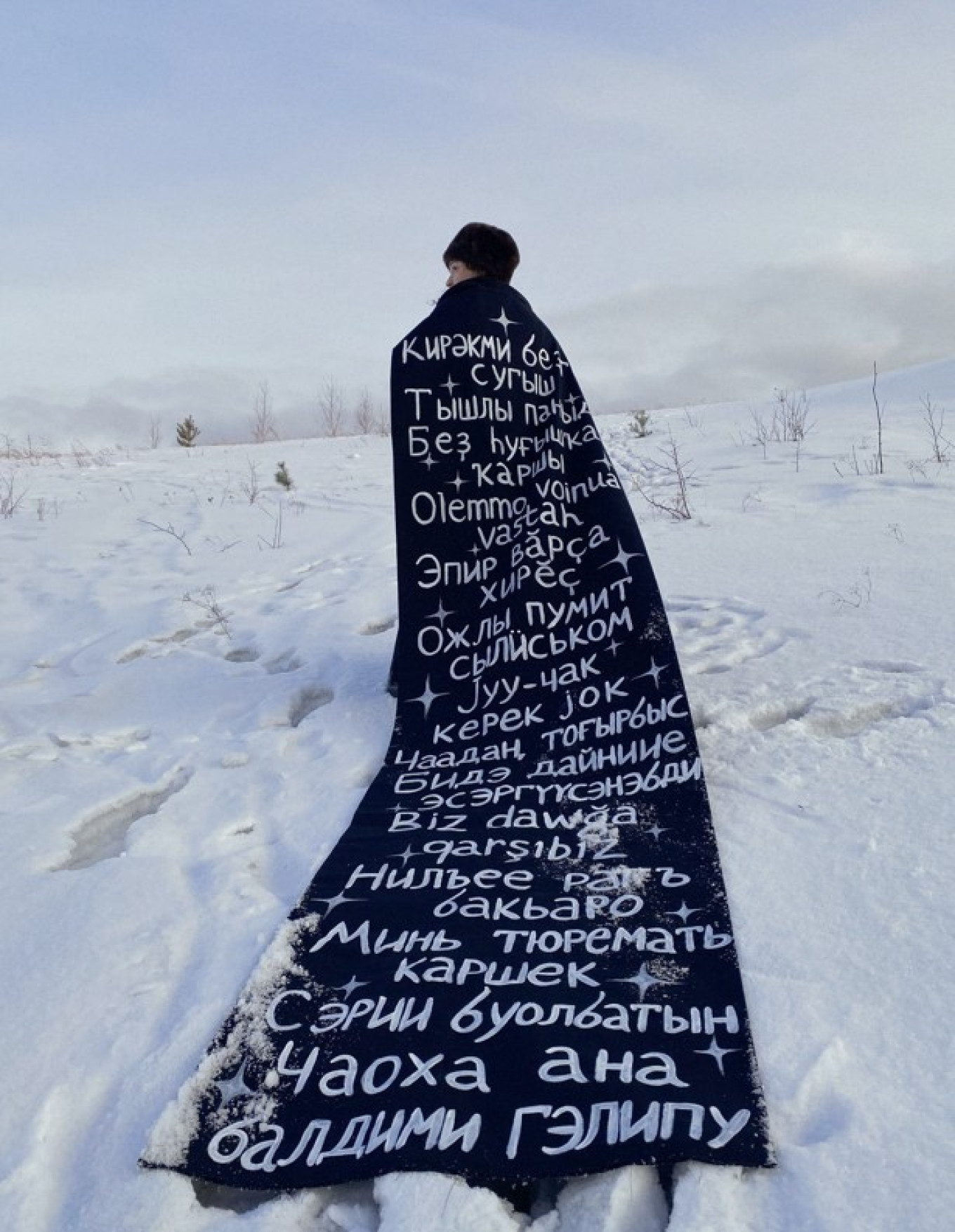
Tired woman
On the first day of Russia's invasion of Ukraine, Alisa Gorshenina wrote “No war” on a banner and brought it to the city center to declare her position. On March 3, the day before the adoption of the law on fakes and discrediting the Russian army, she made a patch with the same phrase on her coat and wore as she walked along Ulitsa Mira (Peace Street). But that wasn’t enough; she wanted to make a work of art.
Alisa Gorshenina works with different materials and techniques, including graphics, painting, ceramics, digital works, and textiles. She also likes to work with masks so that she can express emotions through them and become a part of the art.
One day she had the idea to make a coat with a long train and to embroider on it the phrase “We are against the war” in different languages of the national groups of Russia. “Russia is a multinational country, and I noticed that people had started to speak out against the war in their native languages. They began to talk about their national identity. I wanted to make their opinion more noticeable,” she said.
She first conceived it as one work, but the project “I hear the voices of Russia” grew. Her next work was a costume of a white bird embroidered with the word “peace.” Later she created a heart with the word “pain.” These words were also written in languages of the nations of Russia.
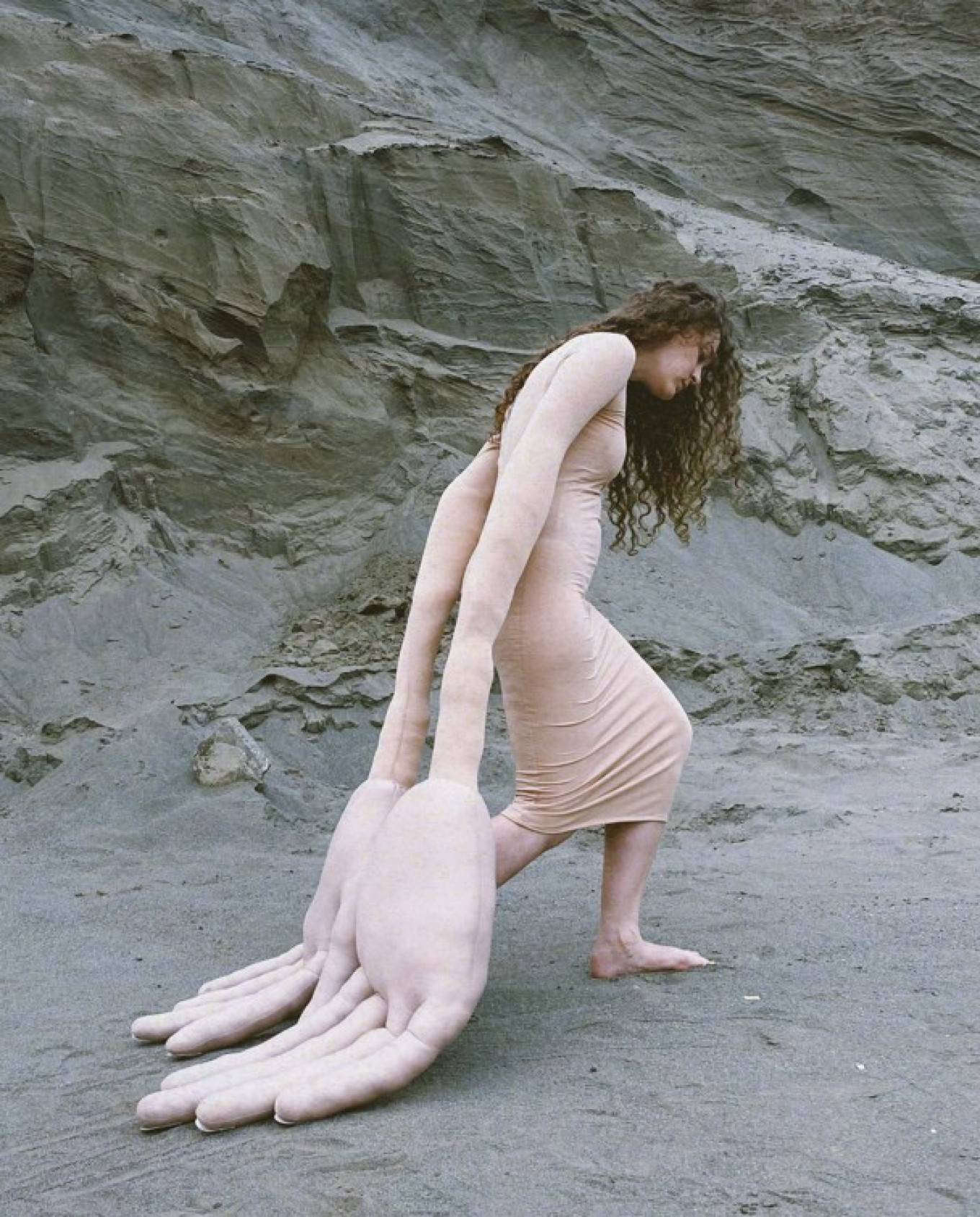
That’s not all. Alisa Gorshenina created the symbolic work “Hands Down (Giving Up).” This was a video of huge textile hands reaching for the artist. The work “Tired Woman” was created by the artist in 2020, but after the Russian invasion it became especially relevant. “Nowadays I am exactly that — a tired woman. That’s why I started to work with this image,” she said.
Gorshenina creates many of her textile works from recycled materials. Initially, she did it because it was cheaper than using new materials. Then she realized she was helping to preserve the natural world. Now her choice has become even more important, since the war destroys everything, including the environment.
Work while you can
In 2022, many exhibitions were planned outside of Russia, including in the U.K., U.S. and France. After Feb. 24, some were postponed and others were canceled. In the spring of 2022, she paid an administrative fine for discrediting the Russian army. “I wasn’t fined for my art, but as a citizen for participating in an anti-war event,” Gorshenina said.
Some private galleries continue to work with her, but over the year the number of exhibitions in Russia has been greatly reduced. However, Alisa Gorshenina has preferred to stay in Russia.
“At the beginning of the war I couldn’t work. Then art helped me to deal with the stress. I realized that I had to make art while I could,” she said. She admits that sometimes she wants to leave Russia, but the urge passes. “When I imagine leaving, I feel terrible. I love my town, I love my home, and I am needed here. I want to make a short film about the village where I was born that is also in the Urals. And I still want to save Russia.”
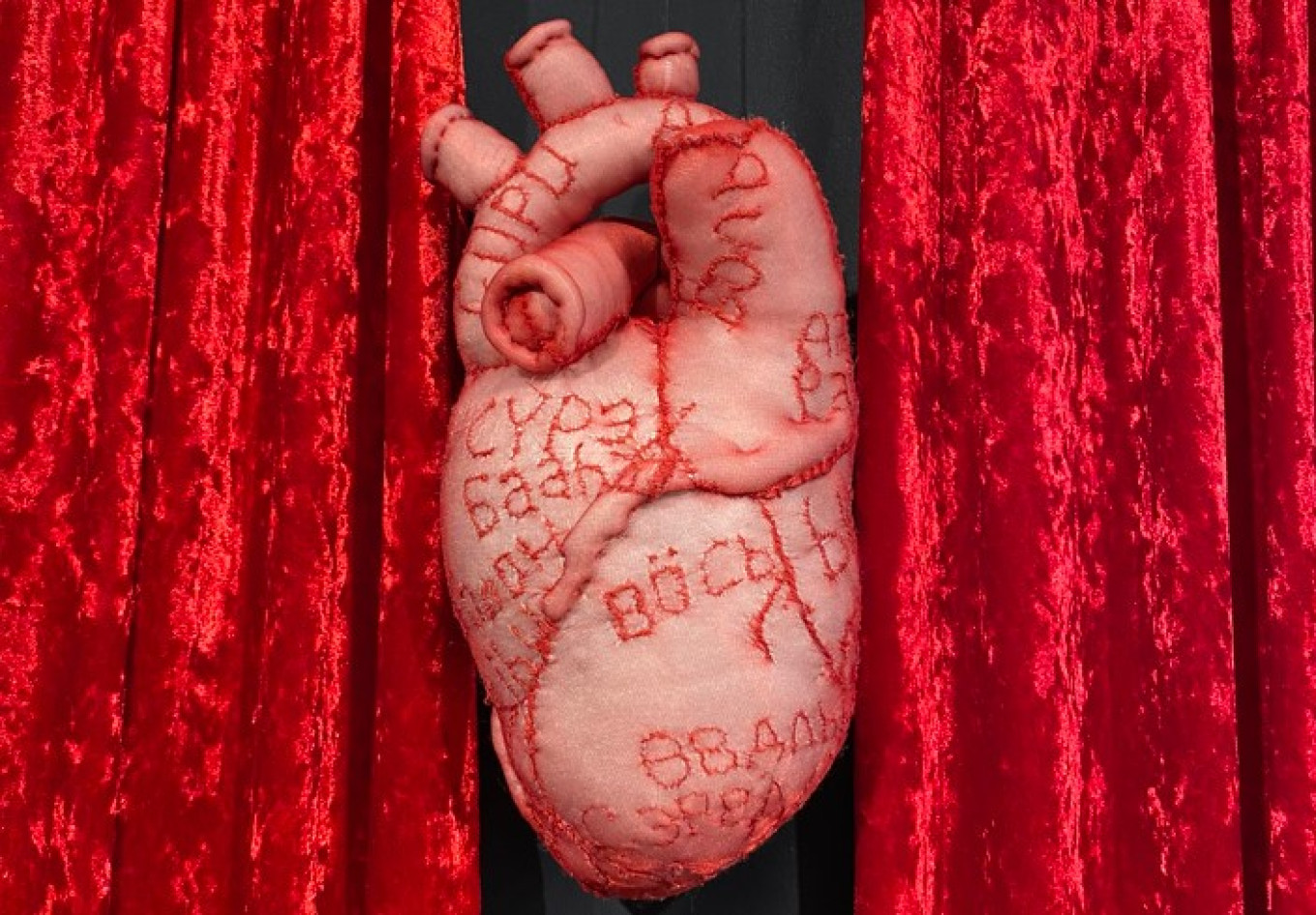
A Message from The Moscow Times:
Dear readers,
We are facing unprecedented challenges. Russia's Prosecutor General's Office has designated The Moscow Times as an "undesirable" organization, criminalizing our work and putting our staff at risk of prosecution. This follows our earlier unjust labeling as a "foreign agent."
These actions are direct attempts to silence independent journalism in Russia. The authorities claim our work "discredits the decisions of the Russian leadership." We see things differently: we strive to provide accurate, unbiased reporting on Russia.
We, the journalists of The Moscow Times, refuse to be silenced. But to continue our work, we need your help.
Your support, no matter how small, makes a world of difference. If you can, please support us monthly starting from just $2. It's quick to set up, and every contribution makes a significant impact.
By supporting The Moscow Times, you're defending open, independent journalism in the face of repression. Thank you for standing with us.
Remind me later.


